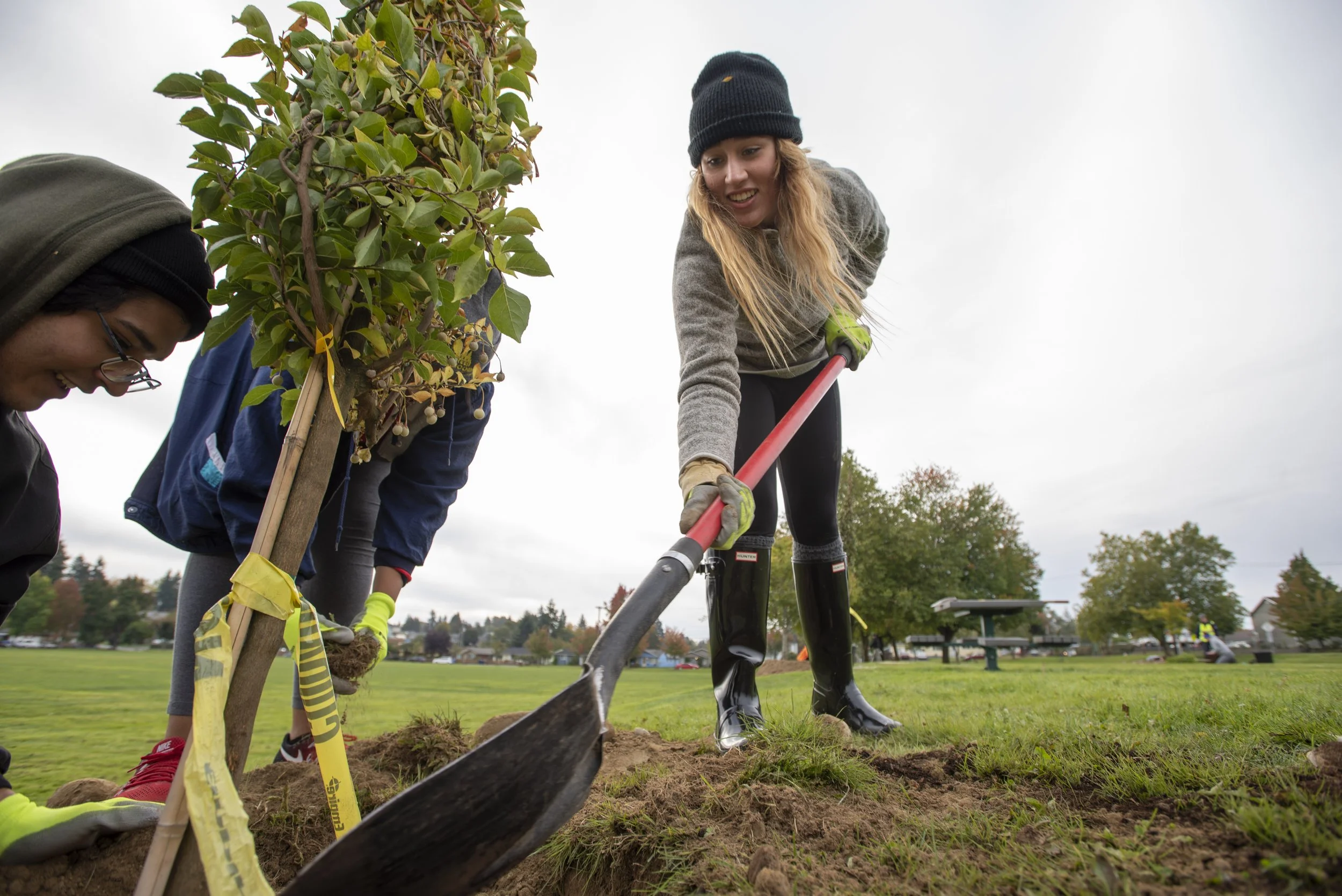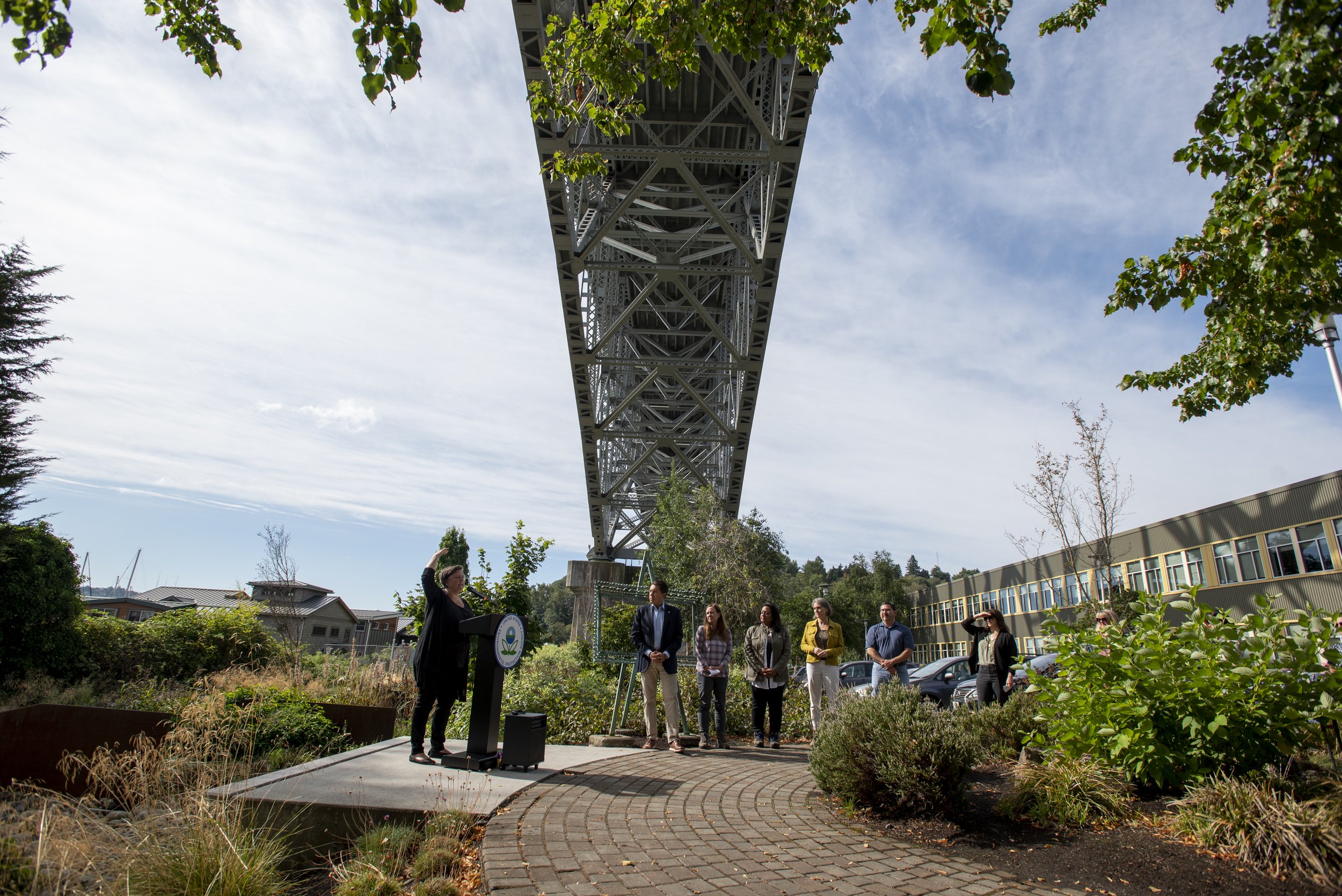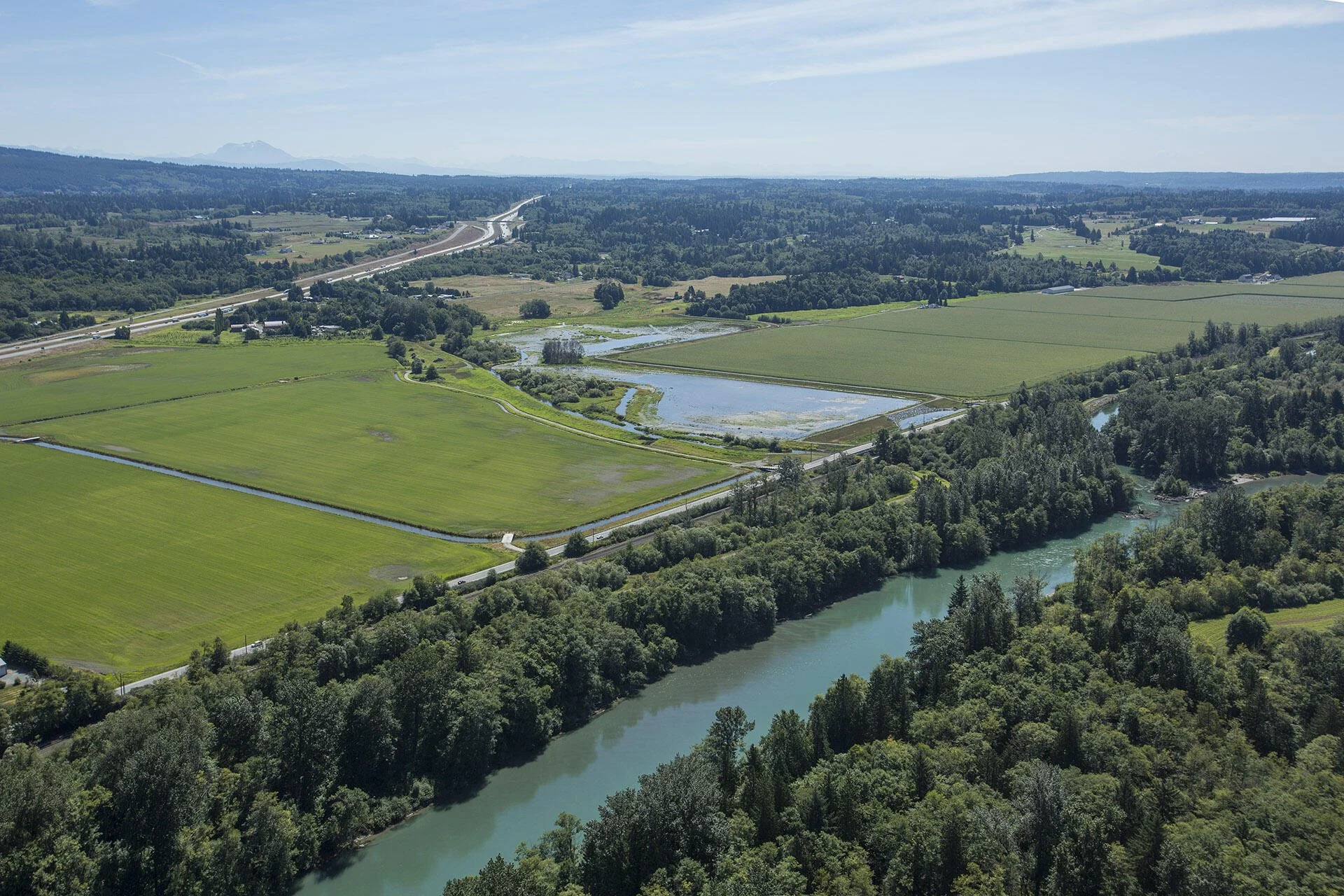By Tasha Mosher, Earth Project Coordinator
Stormwater management is one benefit of a new rain garden at Seattle's Pathfinder K8 — a stronger community is another.
The rain garden is an effort of Pathfinder’s The Earth Project, a group of volunteer parents and students that manage the school's conservation efforts and waste management in the school cafeteria with the underlying principle of "Building connections to the Earth and to one another."
Working together, we had grown a sizeable school garden and installed a large-capacity cistern that collects rainwater from the school's roof. For us, the next logical step was to look at the viability of installing a rain garden to handle the overflow in the rainy months and serve as a demonstration garden for the surrounding community. Delridge — a West Seattle neighborhood where many Pathfinder families live — is a preferred zone for rain gardens since the salmon-bearing Longfellow Creek runs through it on its path to the Duwamish River.
After prompting by a neighbor to apply for a Nature Works Everywhere grant to support school projects like this, The Earth Project received funds to move the project forward. National Nature Conservancy staff from Nature Works Everywhere provided resources, support and a platform for information sharing, which got our project off to a promising start. Though we hit a snag moving through the approval process with the school district, with the decision to shift the location of the rain garden and hire a private utility locator service to ensure excavation didn’t hit any pipes, the project hit its deadline!
Getting our hands in the Dirt
As the work party got under way, volunteers jumped right in. A string of volunteers went straight to digging out sod. A parent set up an art activity for the children. A grandparent started planting donated plants in our wreath garden. Two parents teamed up to build a base for a play sink while another two figured out how to support a recycled gutter against a fence so it could hold its weight filled with soil and berries. A mother-father team unearthed a bunny den while culling out old supplies for recycling or disposal, bringing the children and adults running across the field to look at our little resident-in-hiding.
The team members put in an extra hour to wrap up their jobs, and we left with smiles on our faces as we accomplished more than we hoped to. What more could we ask for, really?
Well a little bit more, actually: A mother came up to me at the end and said that her son had been playing all day with the boy that had been picking on him off and on all school year. The two parents that hauled compost and gravel hugged at the end of the day. And a mother found out that guar gum stabilizes bubble solution, much to the delight of the children at the "work" party.
The rain garden received its finishing touch on the next school day when it was planted by a class of second- and third-graders. It is a conversation topic, a part of our green infrastructure — and also something that brought our school community together.
The Nature Works Everywhere Touch
The volunteer party was set up for success after our incoming Earth Project coordinator Karen Stone attended a Nature Works Everywhere mini-conference, hosted by The Nature Conservancy in partnership with City Blossoms.
Not only did it acquaint her with our project funders, but it was a boot camp of sorts in community-building, project management, volunteer recruitment and more. The insights from the gathering helped when only a few families showed up to our work party. "It doesn't matter if you have five or 50 people at your event," Stone said. "It's how they feel and what sort of community you are building in the process."



























